Passive Skill Tree Guide for Beginners
Last Updated:March 3, 2024|Changelog
Introduction
Each time you level up or complete specific campaign quests, your character in Path of Exile is rewarded Passive Skill Points (PSP). These points are allocated to the Passive Skill Tree which, as the name implies, unlock passive bonuses that enhance your character.
Considering you can unlock up to 123 total PSP, how you allocate these points can DRASTICALLY change your character’s build and potential. So understanding the depth and detail in the Passive Skill Tree is crucial to unlocking the full potential of your build.
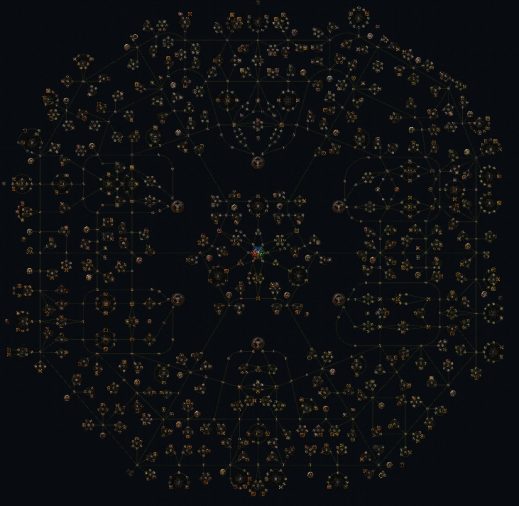
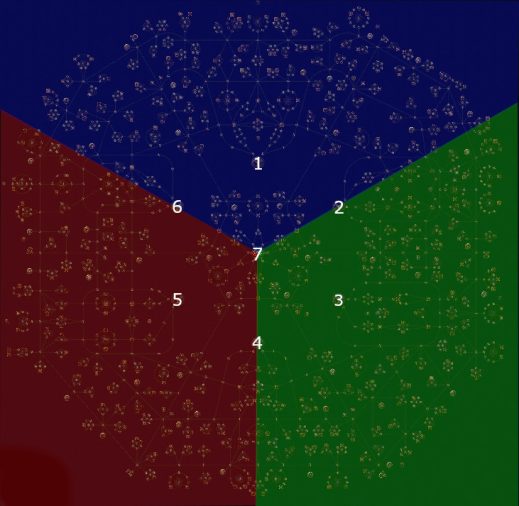
Path of Exile's skill tree might look intimidating, but with these tricks it becomes much easier to navigate.
The Passive skill tree is divided into the 3 different attribute areas (Strength, Dexterity and Intelligence) and each class has a different starting point on the Passive Skill Tree, depending on their affinity to those attributes.
Here's some distinguishing factors to help you understand the Passive skill Tree even better:
- Red = Strength = Melee = Armour
- Green = Dexterity = Ranged = Evasion
- Blue = Intelligence = Spells = Energy Shield
While this is an over-simplified way of understanding the entirety of the grid, it can help to break it down so that build progression makes more sense and you can intuit the decision-making more easily.
If you are following a build guide, make sure to not deviate from it, some of the decisions our guide writers make might not make sense at first, but is going to pay off later!
Passive Nodes
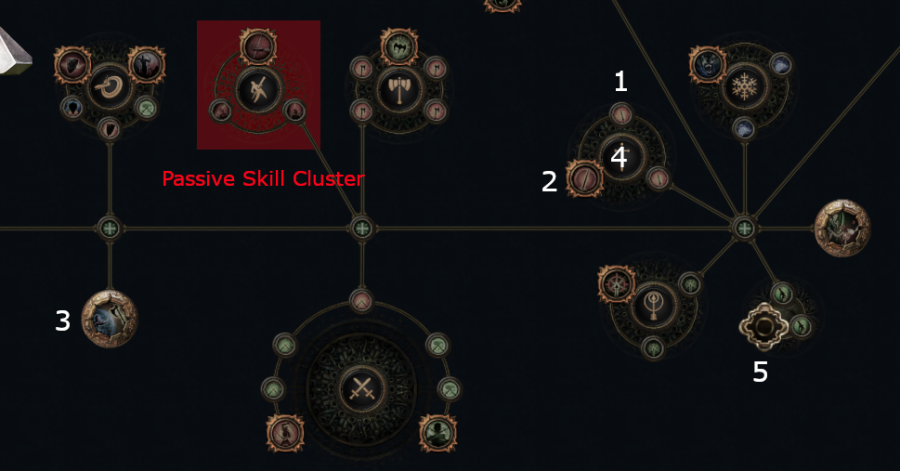
There are 5 different types of passive skill nodes you can allocate, those are:
- Small Passive Skills
- Notable Passive Skills
- Keystones
- Masteries
- Jewel Sockets
1) Small Passive Skills
These provide minor passive bonuses and are prerequisites to other Notable Passive Skills, Keystones or Masteries. They provide a large source of attributes, which you need to use your items and skills!
2) Notable Passive Skills
These provide major passive bonuses and are usually the payoff at the end of a passive skill cluster! Allocating any Notable Passive Skill also allows you to take the corresponding mastery in that passive skill cluster.
3) Masteries
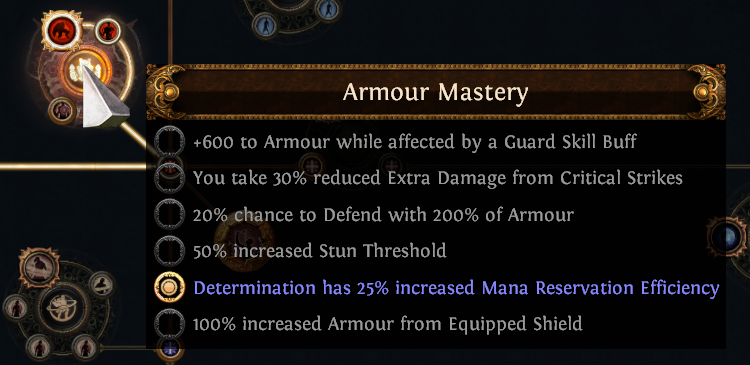
Masteries are specific passive bonuses that can be unlocked once you have allocated at least one Notable Passive Skill in a corresponding passive skill cluster.
They are visibly located in the middle of a passive skill cluster.
There are different mastery groups, which all share the same mod-pool, for example “sword”, “mana” or “armour”.
Masteries are shared across the passive tree, this means you can allocate one of these bonuses no matter where the armour mastery was taken, giving you great flexibility when planning out your builds!
You can allocate only one of these bonuses per passive skill cluster, and each bonus only once in total.
In the example, you can see one of the masteries being greyed out, because it is already chosen on another armour-mastery!
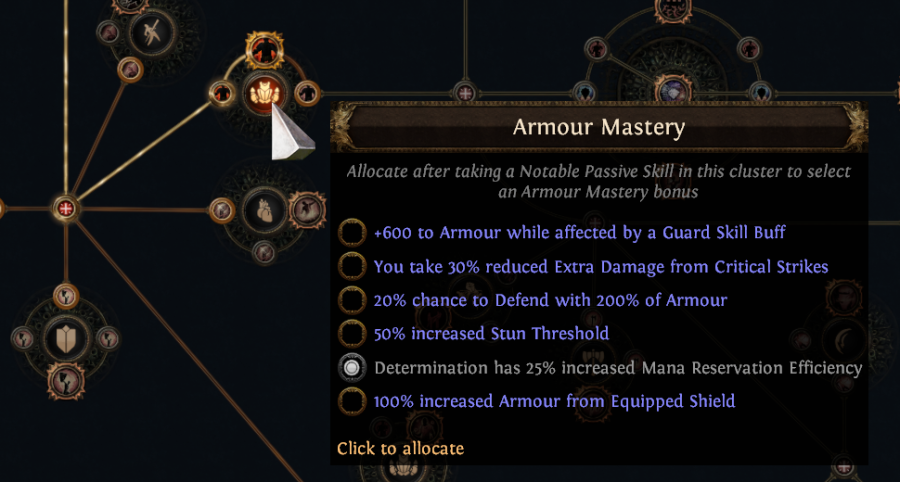
4) Keystones
Keystones provide unique passive skill bonuses that can significantly change your character's functionality in drastic ways. Keystones can grant massive buffs, but some also come with downsides that you need to consider when selecting them
5) Jewel Sockets
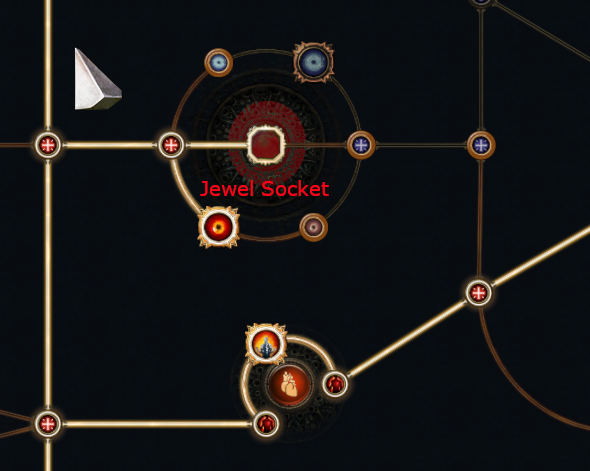
Jewel sockets are passive nodes that once allocated, allow you to socket Jewels into them. A jewel can be a craftable or unique item that grants passive bonuses once socketed into your passive skill tree.
Jewels are meant to be endgame customization options and can negate downsides that certain areas on the passive tree have, by allowing you to get certain stats you usually wouldn't.
For more Information about Jewels, check out our Jewel Guide!
Refunding your Passive Skill Points
If you want to redo your passive skill points, you can use refund points to do so.
You can get refund points by using an Orb of Regret or by completing certain quests throughout the campaign.
Orb of Regret can get expensive, so make sure that you don't need to respec whole Passive Skill Tree later!
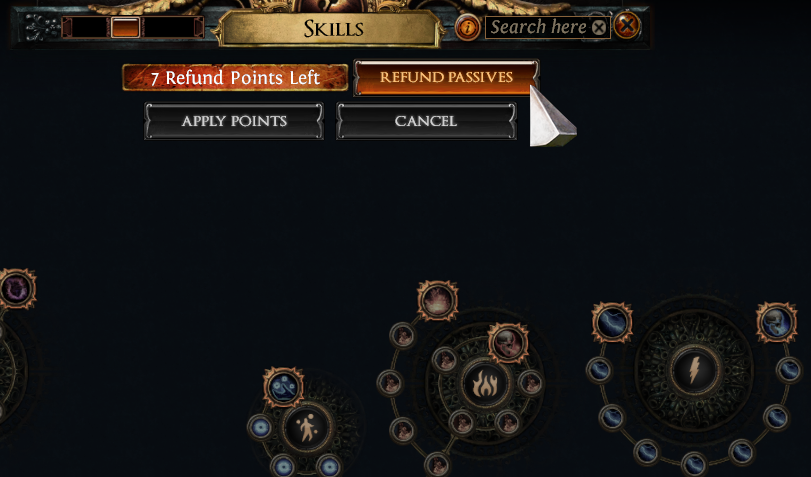
Tips and Tricks
Search Bar
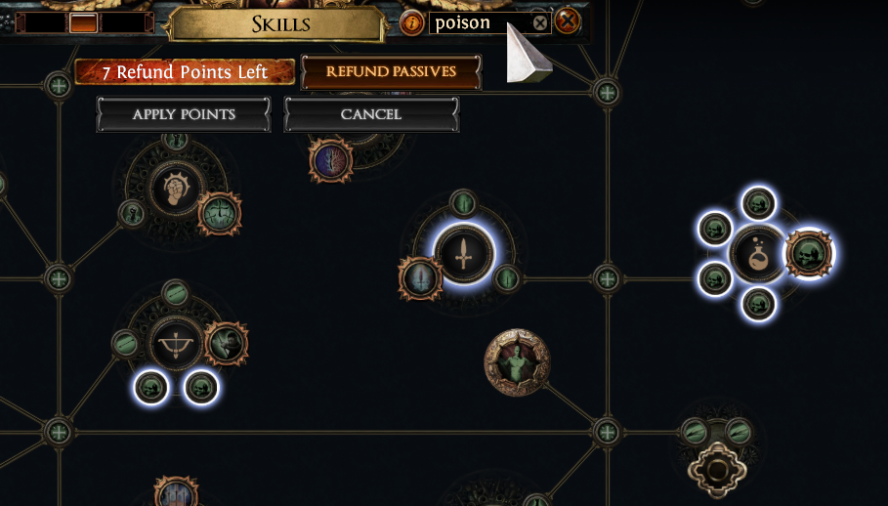
The passive skill tree has a search function on top, which makes it considerably easier to find passive bonuses that fit your character.
This is especially helpful to make out specific nodes for certain damage- or defense-types.
For example, searching for the term "poison" hightlights nodes associated with poison damage or other poison-related bonuses! This can help you better understand where you want to go to on the Passive Skill Tree!
Zoom Function
The passive skill tree also has a zoom function, which you can either use with your mousewheel, or by using the slider you see on the top.
This can help whenever you get overwhelmed by the sheer size of the Passive Tree. Focus on where you are currently, without completely neglecting your endgame plan!
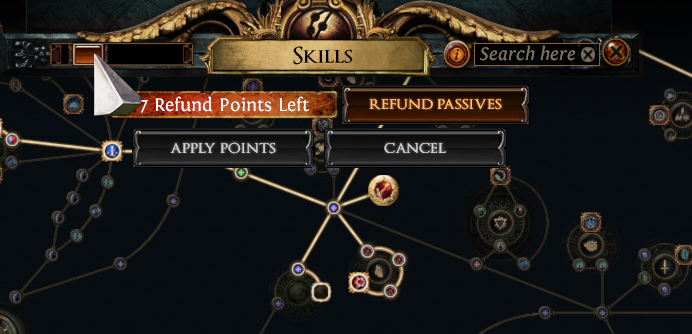
"Dangerous" Keystones
Some Keystones alter your character in drastic ways! Be careful when taking them, especially if you have no refund points to unallocate them immediately! Below are some examples of dangerous Keystones that you should never take without a good reason!
Chaos Innoculation
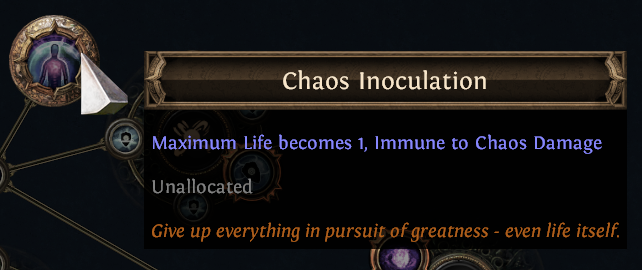
While this keystone makes you immune to Chaos Damage, it also reduces your Life to 1.
It’s used in Energy shield builds that have little use for their Life, but for most builds, this keystone can completely render your character useless, as you'll be killed by any other incoming damage types.
Blood Magic
This Keystone removes all your Mana for the upside of your skills costing Life instead of Mana.
This can be a detriment to certain builds, because your Auras now also reserve Life instead of Mana.
If you are having troubles with Mana costs, usually a Mana Flask fixes your problems. Wait until you are sure Blood Magic is the right choice for your build before selecting it!
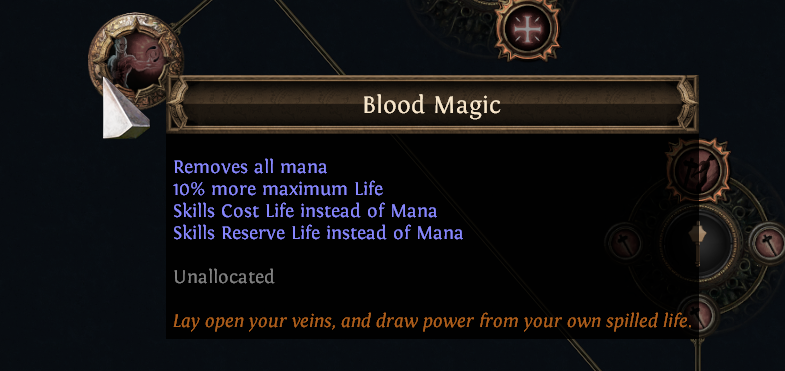
Lethe Shade
This Keystone is mostly used for builds that are already immune to Ailments and are therefore not affected by the downside.
If you take this keystone without preparation, you might find yourself getting destroyed by long-lasting ignites, poisons or bleeds!
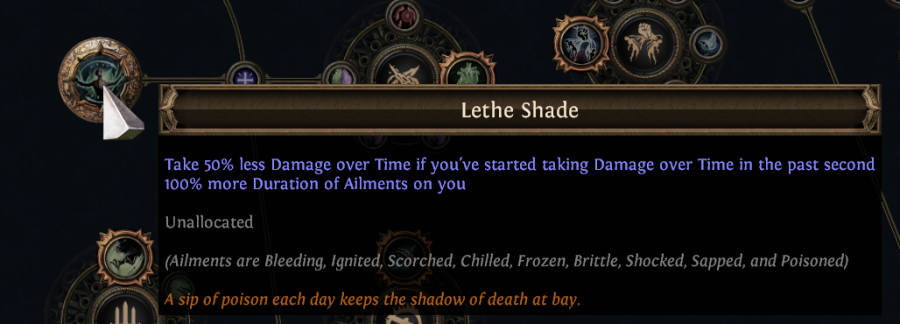
This list of keystones goes on and on, so it's important to follow your build guide when it comes to them. If your guide does not pick a particular keystone, it's for a good reason!
Summary
- Your understanding of the Passive Skill Tree can make or break a build.
- Regions are seperated into Attributes and their assigned damage and defense types.
- There are also distinctions between Small Passives, Notable Passives, Keystones, Masteries and Jewel sockets.
- You can refund your Passive Points later, but only at a cost, so following a Build Guide is extremely useful!
Credits
Written by Palsteron.
Reviewed by MacroBioBoi.